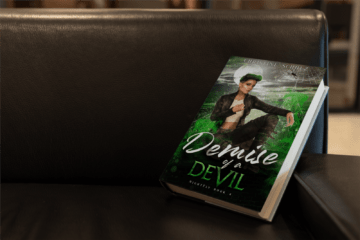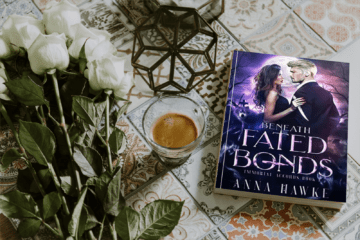Reviews are the bane of an author’s existence. If you follow any authors on social, or contribute to book groups on Facebook, you’ve probably seen a number of authors promoting their work and asking (ok, begging) for reviews. If you are one of the generous people who would like to help us out, here’s how you can support us with a review.
Where should I leave my review?
Anywhere the author sells their books! Amazon is typically on the top of every author’s list, but there are a number of other sites like Barns & Noble, BookBub, Goodreads, and others. In addition, we will never say no to a shout out on social.
What should I focus on in my review?
Generally speaking, you’ll want to focus on what makes the book enjoyable and unique. For example, in my NightFly series, the main character is a part cat/spider shifter and she can hear, smell, and feel magic, but can’t see it. While I may not be the only book out there with these traits (although I’m fairly certain you’ll have trouble finding another cat/spider shifter), the combination sets my book apart from what most typical urban fantasy books on the market tend to be and could be a selling point to new readers.
Length: The length of a review is usually about two paragraphs long. Shorter reviews (especially the dreaded two word “Great book!”) may look like spam and could potentially be removed from the listing. Longer reviews, while can be helpful, tend to be so intense that the potential reader will only read the first paragraph anyway, then move on.
Characters: Did you enjoy reading about a specific character? Are they likeable, relatable, realistic (as far as book characters go, anyway)? Maybe you didn’t like something about them. That’s ok, but remember everyone has flaws. Just like people in real life, fictional characters make stupid choices, it’s how they react to them that makes a difference. If they were perfect, it’d be a pretty boring story.
Setting: Worldbuilding is a big part of developing a story, especially in the fantasy and sci-fi genres where society runs on magic or technology that doesn’t exist in real life. Write about how creative (or not creative) the author painted the picture of the world their characters lived in. What aspects stood out to you? What did you want to see more of? Remember that even when writing about real places, authors sometimes take liberties in creating fictional settings within them. Maybe they didn’t capture New York City perfectly, or they made up the name of a park that doesn’t exist. Authors can get into trouble if they slander real life people, places, and things, so there may have been a reason why they chose to make something up.
Writing style: Every author has their unique writing style. Some may hate it, others go bonkers over how amazing it is. If you’re writing about the author’s style, you can mention things like how descriptive they were. Sometimes, too little can make it hard for readers to get a sense of the characters or settings, but too much slows down the flow of the story. I would personally skip the mentions of trigger warnings unless the book is mislabeled and you’re reading a young adult book that’s really for the older audience. It’s not uncommon to see dark themes in stories, and many times the categories the book is placed in will give you some kind of warning. Even if you’re aware about these trigger warnings, there’s no need to mention how awful or inappropriate it was to read about it.
Manuscript errors: We are all human, and even though many of us authors send our manuscripts through editors and beta readers, typos and inconsistencies slip through the cracks. If the book is laden with that many errors, you may want to try reaching out to the author directly to let them know rather than posting about it in a review. It could be a situation where Amazon never actually updated an old manuscript (that one happened to me on several occasions!) or you have an older version of the book that has since been corrected. Typos can also be fixed, so assuming the author goes back to clean up the manuscript, your review then becomes irrelevant.
Don’t just reword the blurb: The blurb is already there. You can recap a detail or two, but there’s no need to spend an entire paragraph telling the reader exactly what they can find out by reading the description of the book. Additionally, don’t copy other readers reviews. If too many reviews sound the same, Amazon may flag them as spam and start removing them, even if they’re legit.
Avoid spoilers! You’re ruining the book before the reader even has a chance to buy it! In fact, some readers may even decide to pass on the book if someone ends up spoiling it for them.
Be respectful: You can write about something negative in your review, (check out this post to learn how) just be respectful about it. The purpose of a review is to help other readers better understand what you did or didn’t enjoy, not to bash the author and their work. If you didn’t like the story, that’s fine. But that doesn’t mean the next reader will share your same feelings.
Lastly, don’t hate on us because you hate Amazon: Did your book arrive late or damaged? Maybe it was printed wrong? Please don’t negatively review us for that! Authors have absolutely nothing to do with the logistics of how and when your book is shipped out.



